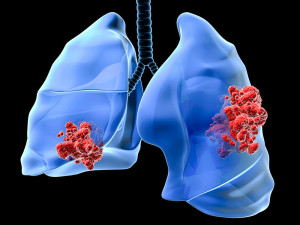- Home
- Editorial
- News
- Practice Guidelines
- Anesthesiology Guidelines
- Cancer Guidelines
- Cardiac Sciences Guidelines
- Critical Care Guidelines
- Dentistry Guidelines
- Dermatology Guidelines
- Diabetes and Endo Guidelines
- Diagnostics Guidelines
- ENT Guidelines
- Featured Practice Guidelines
- Gastroenterology Guidelines
- Geriatrics Guidelines
- Medicine Guidelines
- Nephrology Guidelines
- Neurosciences Guidelines
- Obs and Gynae Guidelines
- Ophthalmology Guidelines
- Orthopaedics Guidelines
- Paediatrics Guidelines
- Psychiatry Guidelines
- Pulmonology Guidelines
- Radiology Guidelines
- Surgery Guidelines
- Urology Guidelines
Largest genome-wide study of lung cancer susceptibility identifies new causes

A huge study identified several new variants for lung cancer risk that will translate into improved understanding of the mechanisms involved in lung cancer risk.
Using the OncoArray genotyping platform developed by multiple cancer consortia, a recent large aggregated genomewide association study identifies new susceptibility loci for lung cancer, the leading cause of cancer mortality worldwide. Although tobacco smoking is the main risk factor, past studies have shown heritability of lung cancer estimated at 18%. Previous genomewide association studies have identified several lung cancer susceptibility loci but most of its heritability remains unexplained. This study undertook additional genotyping of lung cancer cases and controls.
The study was co-led by Christopher Amos, PhD, interim Director and Associate Director for Population Sciences, Norris Cotton Cancer Center; James McKay, PhD, International Agency for Research on Cancer; and Rayjean Hung, PhD, Lunenfeld-Tanenbaum Research Institute and University of Toronto, along with many lung cancer investigators worldwide. It combined 14,803 cases and 12,262 controls of European descent with existing data, totaling 29,266 cases and 56,450 controls. Researchers identified 18 susceptibility loci achieving genome-wide significance, including 10 new loci. The new loci highlight the striking variation in patterns of risk between lung cancer subtypes adenocarcinoma and squamous lung cancer, with four loci associated with lung cancer overall and six loci associated with lung adenocarcinoma. Variants in several genes related to telomere function were found to play an important role in contribution to adenocarcinoma risk but not squamous carcinoma risk.
Their findings, "Large-scale association analysis identifies new lung cancer susceptibility loci and heterogeneity in genetic susceptibility across histological subtypes" will be published in an upcoming issue of Nature Genetics.
"What is particularly exciting is the magnitude of the study along with the new findings of genes influencing lung cancer which have not previously been reported" said Amos. "This study definitely leads to new ideas about mechanisms influencing lung cancer risk. In particular we identified several novel variants influencing telomere function that impact risk for lung adenocarcinoma. In addition, we found variation around a subunit of the nicotinic receptor that affects lung cancer risk and smoking behavior and appears to have a primary effect in the cerebellum, which has rarely been implicated in affecting addictive behaviors." Further studies will provide a better understanding of the role of target genes in influencing lung cancer risk, smoking behavior and smoking effects on brain biology.

Disclaimer: This site is primarily intended for healthcare professionals. Any content/information on this website does not replace the advice of medical and/or health professionals and should not be construed as medical/diagnostic advice/endorsement or prescription. Use of this site is subject to our terms of use, privacy policy, advertisement policy. © 2020 Minerva Medical Treatment Pvt Ltd